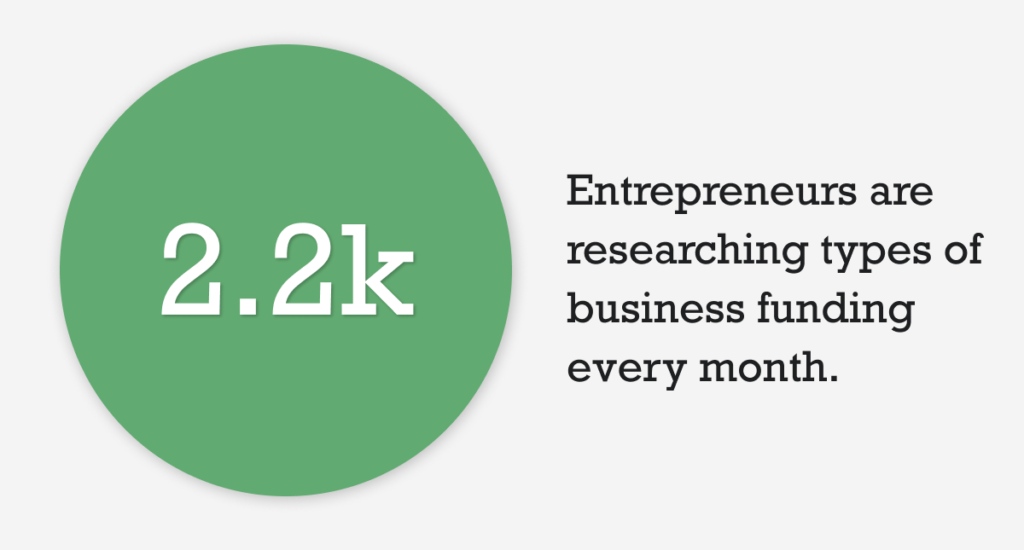Which of These 6 Business Funding Options Are Right For You?

Mia, an entrepreneur from Charlotte, NC, recently sent us this question about business funding options. She asked:
“Besides getting a bank loan to start my business, what other types of funding options are out there, and how do I know which one’s right for me?”
Great question, Mia. Most everyone is familiar with brick-and-mortar bank loans, but here are six other business funding options that you may not know of (and how to tell if they’re a good fit for you!):
Angel Investors are like the fairy godmothers of business (except there needs to be something in it for them!). They generally invest in your startup in exchange for an equity ownership interest.
- What’s required: must meet investment criteria, high-growth business model, have a team identified.
- Best for: businesses with high growth prospects, reasonable exit potential.
Grants(SBIR) are about as close to free money as you can get because even if you’re required to match funds, they generally don’t have to be paid back.
- What’s required: Must meet grant criteria, have time and ability to create applications, and possibly match funds.
- Best for: businesses with reasonable growth prospects and job creation potential.
Psst: Check out this list to get an idea of the types of grants available to small business owners!
Suppliers can “scratch your back while you scratch theirs,” by extending credit to cover buying products or raw materials you’d already be purchasing from them (but not labor or other costs).
- What’s required: Must represent strong, long-term value to the supplier, convince them the upside is worth investing in.
- Best for: businesses with high growth prospects, long-term potential.
Equipment financing is another mutually beneficial funding option and can help you afford the expensive equipment you need (often the largest initial expense to get your business off the ground).
- What’s required: Must meet financing criteria, have creditworthiness, and guarantee payback.
- Best for: Businesses in industries and markets targeted by lenders (i.e., Brewing & Distilling, Restaurants, Welding, etc.)
SBA/CDIF Loans are the gold standard for many small business owners and a solid, attractive option because of their lower down payments, flexible overhead requirements, and no collateral needed in some instances.
- What’s required: Must meet financing criteria, have sufficient creditworthiness, and guarantee payback.
- Best for: Businesses with reasonable growth prospects and job creation potential.
Incubators/Pitch Competitions(think: Shark Tank on a smaller scale) allow you to “sell” your business idea with the shot at winning prize money towards starting or growing your business.
- What’s required: Must match target profile, have a well-defined business plan.
- Best for: Any business that qualifies
Of course, we’re just scratching the surface here, so be sure to let us know what other questions come up. We’ll work on another blog post that dives deeper into this topic to expand your entrepreneurial mind even further.
Turns out, there are tons of entrepreneurs out there wondering the same thing.

Here are some of the top sites they visited to get answers:
- The Small Business Association’s Guide to Funding Your Business
- Startups.com’s Types of Startup Funding
- 8 Ways to Get Money to Start a Business
The question on how to get funding for a startup is just one part of the larger topic of business funding. There are many different stages a business goes through, so before you can feel confident that you understand which ones are right for your business, you’ve got to master a few fundamentals.
Here’s help to get started:
- At some point, your business is going to need to raise money. The 6 Methods for Raising Money podcast episode will help you decide which source of capital makes the most sense to pursue for where your business is at.
- Do you know what stage your business is in and which funding options make the most sense? The Basics of Business Funding training will help you figure out where to get the money you need to take your business further.
- If you’re going to approach investors or enter a pitch competition for funding, you’ve got to be able to concisely and convincingly explain what your business is and does. Our Business Summary training will help you polish your pitch and get your venture on one page.
Share this Question!
Want to write an article for our website? Learn more and submit a guest blog here.


